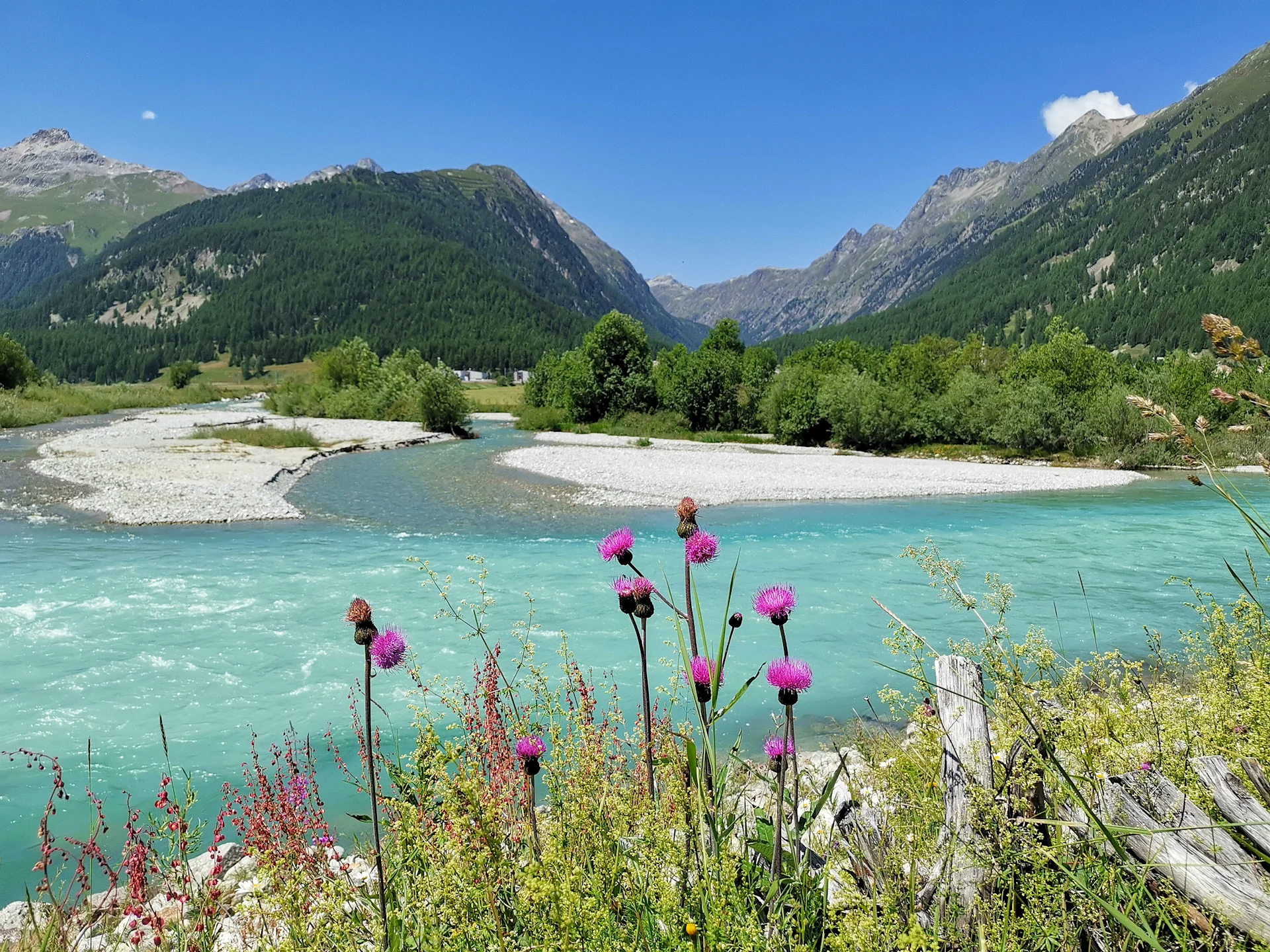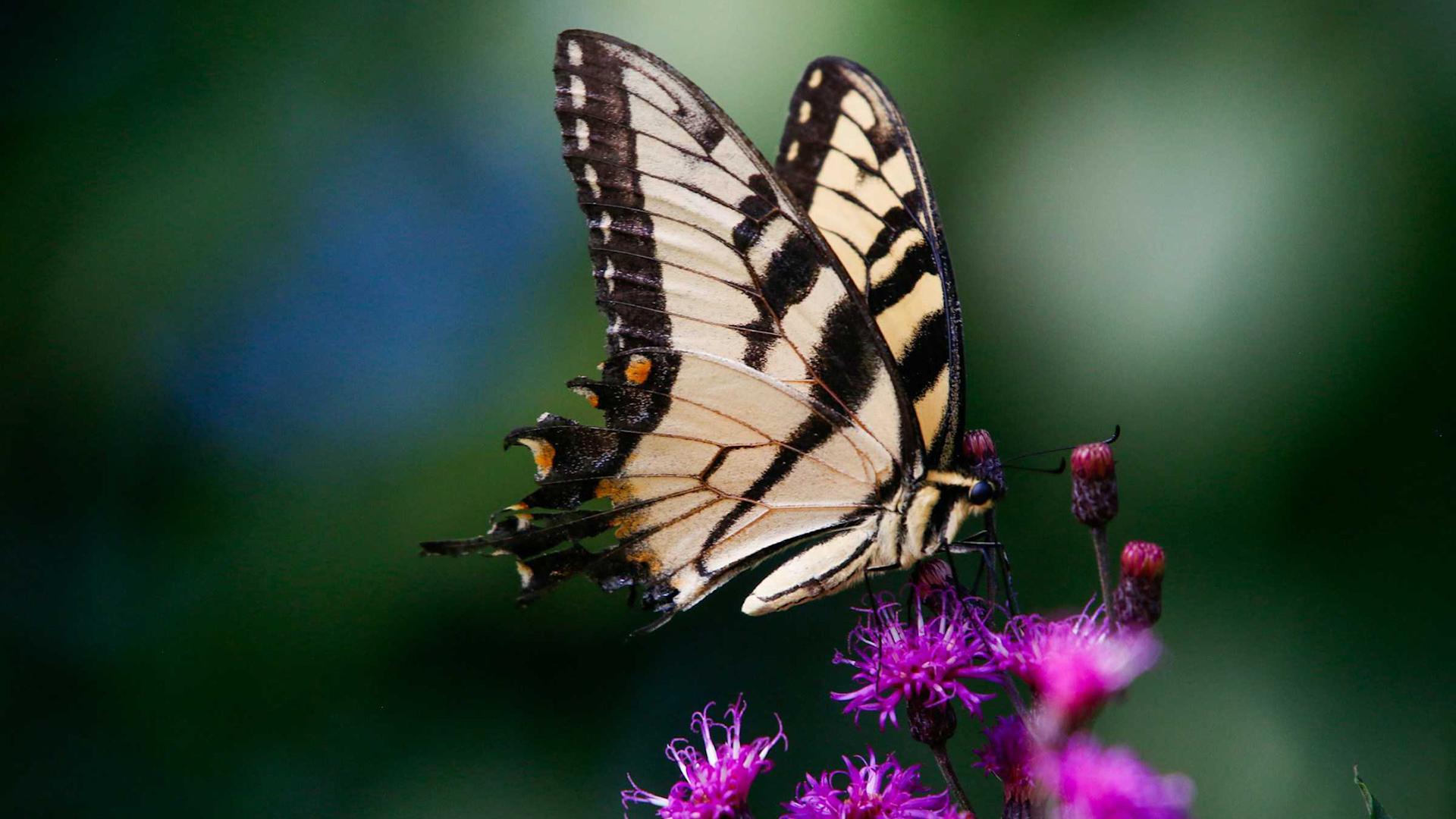
Biodiversity
Back to nature
The example of Bever shows the benefits of renaturation the floodplains. We also present four day trip destinations.
navigation

Biodiversity
Biodiversity is diminishing at an ever-greater pace. In this interview, biologist Frauke Fischer reveals why pessimism isn’t an option and how the Congo Basin affects us.
Frauke Fischer, do you have a fly swatter?
No. I catch the flies in my apartment alive, usually using a matchbox, and then release them again. Friends recently gave me a plastic insect catcher with a sliding lid. That’s good too. (Laughs)
Why shouldn't we kill insects like flies and mosquitoes?
Out of respect for the wonder of nature. As a biologist, I also think about the huge number of insects that would die if everyone killed a few of them each year. To put a positive spin on it: if we all decided not to do it, we’d be helping to preserve biodiversity.
Is every insect important to biodiversity?
Yes, even though nobody's going to kill off a species by swatting a few flies. Every living creature is an element in an increasingly fragile system of life. A good analogy is an aeroplane on which the rivets are slowly coming loose. The more rivets loosen, the greater the risk that the plane will crash.
How rapidly is biodiversity decreasing?
We’re currently losing an estimated 150-200 species a day. The arthropods – that is, the group containing insects, crustaceans and arachnids – are being hit hardest.
Why is that bad news for us humans?
Because we depend completely on processes in ecosystems that would collapse without biodiversity.
Can you give us an example?
Take fertile soil. The world’s entire food supply relies on it. No human being is capable of replicating the interaction between animals, insects, micro-organisms and plants. But we also need to think about biodiversity in global terms. Switzerland’s climate is created in the Congo Basin. If the rainforests continue to disappear at the present rapid rate, the climate will soon reach a tipping point including eventually also here in Switzerland.
We must stop interfering with intact ecosystems immediately.
What are the main causes of this loss?
Aside from the destruction of natural habitats, the main factors responsible are climate change, invasive species, environmental toxins and the excessive decimation of animal populations, for example through overfishing.
How can we turn things around?
First of all, we must stop interfering with intact ecosystems right now. Every minute, rainforest the size of 11 football pitches is being destroyed - that’s a ticking time bomb. Secondly, we must restore the habitats that we have already destroyed. Here I’m talking about re-wetting moors and other wetlands.
Are you more optimistic or pessimistic that we can turn things around?
Pessimism simply leads to lethargy, which thus accelerates the loss of biodiversity. I therefore feel duty-bound to be optimistic.
Promoting biodiversity: we can't do it on our own. Play your part now and protect Switzerland's biodiversity together with us!